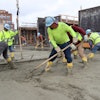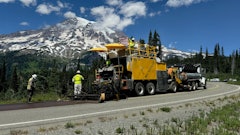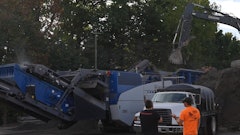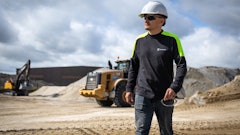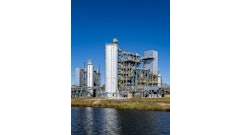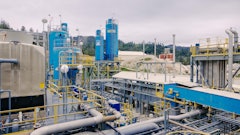
The recession saved lives in the construction industry.
In 2010, 780 construction workers nationwide died from injuries sustained at work, according to a U.S. Department of Labor report released Thursday. That's a 40 percent decrease from 2006 and continues a downward trend in construction fatalities since 2007, which was when the recession began.
"There's never really anything good to be taken from a recession," said Dan Burazin, safety director for the Associated General Contractors of Greater Milwaukee. "But if you were to look for something good, this would be one of the things. "
The overall construction industry employed 7.7 million workers in April 2006, said Ken Simonson, chief economist for the Associated General Contractors of America. By the start of 2010, about six months after the generally accepted end of the recession, the industry employed only about 5.5 million workers, he said. The number of employed has remained static since then, he said.
But the decrease in fatalities, while linked to fewer people on fewer construction jobs, also is tied to the workers who remained employed, Simonson said.
"Companies have pared their work force to keep the most experienced," he said. "And of course accidents, let's say injuries and fatal incidents, tend to probably happen more with less-experienced workers. "
Ten people died in construction accidents in Wisconsin in 2010, according to the federal Bureau of Labor Statistics. Since 2006, the state has averaged 13 construction-related deaths a year, below the national average of 21 per state.
Jeff Schilleman, safety director for The Boldt Co., Appleton, said the contractor hasn't had a fatal injury since 2003, when an employee was run over by a cement truck. Schilleman said the company had avoided fatal accidents in recent years because it used a veteran work force on jobs.
"We have noticed that our workload is down somewhat, but we still have the same exposures out there we always had in the past," he said. "Over the years, as a guy gets in more time with us and the more training we do with him, the more we know what his work capabilities are.
"In a slower economy, you're going to get your more experienced and regularly steady workers working for you. It's not like bringing an apprentice off the street. "
The reduction in jobs also has led to employees doing a better job following safety standards, said Burazin, who provides safety training to companies. In the past, he said, workers who didn't want to wear safety equipment, for instance, were likely to just leave the job for different employment.
With fewer options comes greater willingness to follow the guidelines, Burazin said.
"If I ask them to be safe, they'll say yes," he said. "They want to continue to be employed, so they aren't going to bend rules and do things they aren't supposed to. "
Adding to the focus on safety during a down economy, Burazin said, are owners who want more oversight on jobs to protect workers and ease liability concerns.
"There's a major client I'm doing work with right now that's requiring full-time safety personnel on site to make sure these guys are doing the things they need to do," said Burazin, who would not name the client.
If a recession saves lives, a booming economy could put more lives at risk, but Burazin said it was on the workers to make sure that didn't happen.
"I'm not going to be a tough guy," he said. "I try to reason with their common sense and say, 'Hey, do you really think you should be doing that?'
"If a guy doesn't wear a hard hat, I'm not going to get hurt. He is. "


